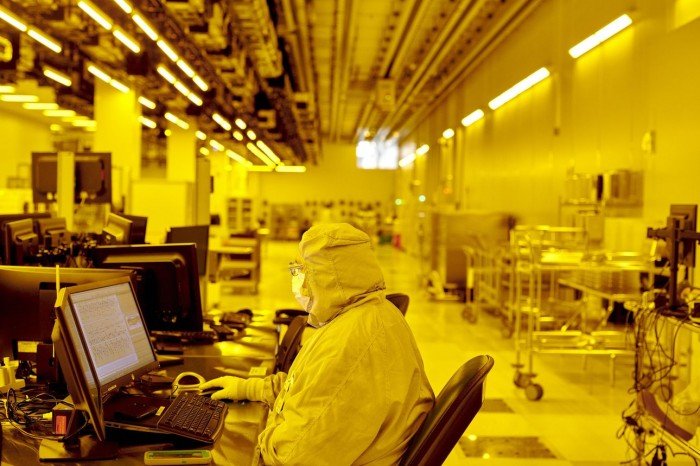The industry faces a labor shortage, and chip makers compete for talent

Now, the world’s largest chip manufacturers are competing for workers to staff the facilities they have built around the world worth more than one billion U.S. dollars, thereby further solving the problem of global semiconductor shortages. Over the years, the supply of qualified workers has been declining, which worries semiconductor executives.
According to industry officials, this concern has now been amplified by the global labor shortage, the demand for all digital things triggered by the new crown pandemic, and the competition of governments to strengthen local chip manufacturing capabilities. Many industries are experiencing labor shortages. Although chip manufacturers have an advantage because their processes are the most automated, the high-tech equipment used in their facilities still requires skilled employees to operate it. The large-scale expansion now taking place is creating special needs for personnel, usually in special areas. Jim Koonmen, executive vice president of ASML Holding NV, a semiconductor production tool manufacturer, said: “We are definitely fighting a talent war.” educate Engineers to operate. Technicians oversee and manage the manufacturing process, while researchers help innovate new types of chips and manufacturing methods.
“The entire semiconductor industry needs increased skills from the construction industry to support our factory construction all the way to the most advanced researchers,” Intel executive vice president Ann Kelleher said at a recent US Congressional hearing. It is reported that he was previously responsible for overseeing the company’s manufacturing operations. Intel has pledged to invest more than US$100 billion in chip factories in the United States and Europe in the next few years. Semiconductor manufacturing companies in Taiwan, China, Samsung Electronics companies, and other companies also have large-scale expansion plans. According to a report by the talent management company Eightfold.ai, in the United States alone, it will be necessary to add about 70,000 to 90,000 workers on the basis of 2020 by 2025 in order to meet the most critical labor demand for expected factory expansion. According to the study, in order to make the United States independent of foreign supplies, some members of Congress are urging for more ambitious expansion, which will increase the number to 300,000 workers. According to 104 Job Bank’s data, in Taiwan, the global chip manufacturing site, the hiring gap there has reached the highest level in more than six years.
A report by the recruitment platform in August estimated that the average monthly gap for semiconductor workers was about 27,700, an increase of 44% over the previous year. The report also said that the average monthly wage in the chip manufacturing industry has risen to the highest level in more than a decade. “The problem of talent shortage has become more serious, mainly because of the increase in demand,” said Yao-Wen Chang, dean of the School of Electronic Engineering and Computer Science at the Taiwan University of China. “I am not optimistic that we can completely solve this problem,” Koonmen Said that in the next period of time, ASML, the Dutch company’s personnel demand is expected to increase by 10% or more every year, only in this way can it meet the booming demand for its tools brought about by the surge in new chip factories around the world. In order to attract employees, Koonmen pointed out: “We are strengthening our game in many ways, including strengthening its recruitment function.” He said that the company is fine-tuning its search for suitable talents and deepening connections with universities to have a graduate channel. The company needs talents with skills ranging from optics and software skills to electronic engineering. David Reeder, Chief Financial Officer of GlobalFoundries Inc, said: “In my opinion, the US labor market may be the most competitive labor market for us.”
In addition, he added that this may remain tense for a few years. Market. Engineering professors said that intensifying this concern is that in recent years, university graduates’ interest in chip manufacturing has waned, because many people are now more willing to find jobs in software or Internet services, and are unwilling to have no substantial salary returns. Under the circumstances to study for a doctorate. Rochester Institute of Technology professor Santosh Kurinec said that the number of undergraduate students in electrical engineering at the school has been declining-from about 50 in the mid-1980s to about 10 now. “Some people want to develop an application for Google and Facebook and other companies.” In Taiwan, as semiconductors have become more complex, a lack of highly skilled engineers may undermine efforts to stay on the cutting edge of advanced technology. Terry Tsao, the global chief marketing officer of the industry association SEMI and chairman of the Taiwan branch of China, pointed out: “We need more PhDs, and they must also participate in the next generation of the semiconductor industry.” In the process of eagerness to attract talents, the government may Will play a key role. American chip companies have lobbied lawmakers to allow them to recruit from overseas because the number of American graduates has decreased and the enrollment rate of graduates has shifted to foreign students.
In May last year, China Taiwan passed a law to promote innovation and education in high-tech fields such as semiconductors. This allowed several universities in Taiwan to cooperate with companies including TSMC to open specialized semiconductor colleges. Mainland China has also launched specialized semiconductor research schools and training centers as part of its promotion of self-sufficiency in advanced technologies, including chips and artificial intelligence. As of December, 12 universities in China have established colleges focusing on chips, including famous universities such as Peking University and Tsinghua University. Ivan Platonov, research manager of EqualOcean, a technology research company based in Beijing, estimates that due to increased investment in the chip field, China’s semiconductor labor force has almost doubled in the past five years. However, the country is short of about 250,000 in 2020. Engineers.
Research Snipers is currently covering all technology news including Google, Apple, Android, Xiaomi, Huawei, Samsung News, and More. Research Snipers has decade of experience in breaking technology news, covering latest trends in tech news, and recent developments.









